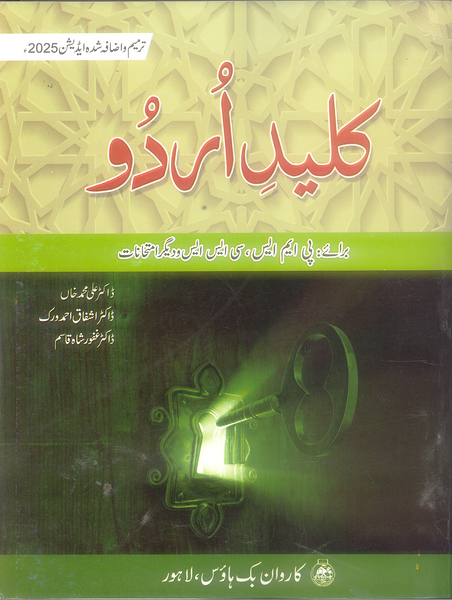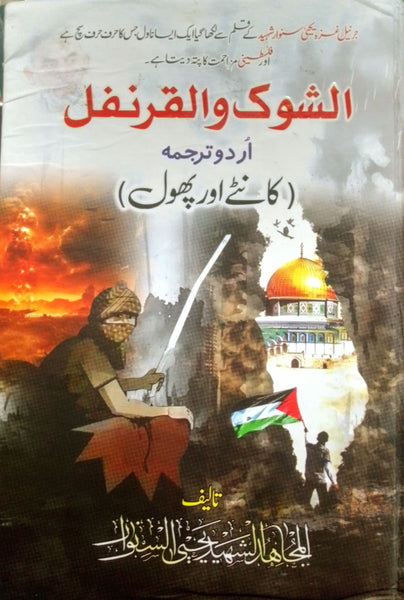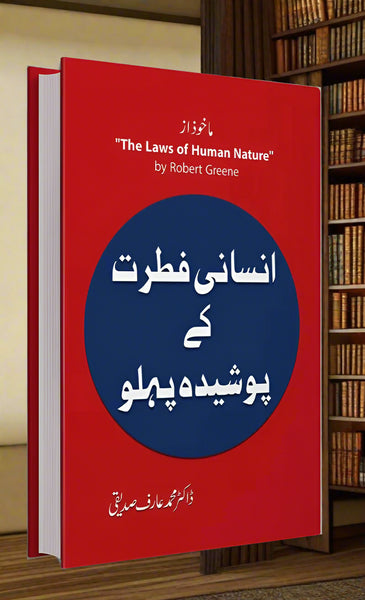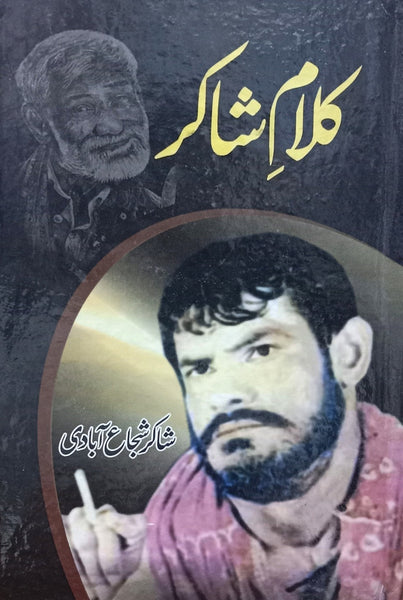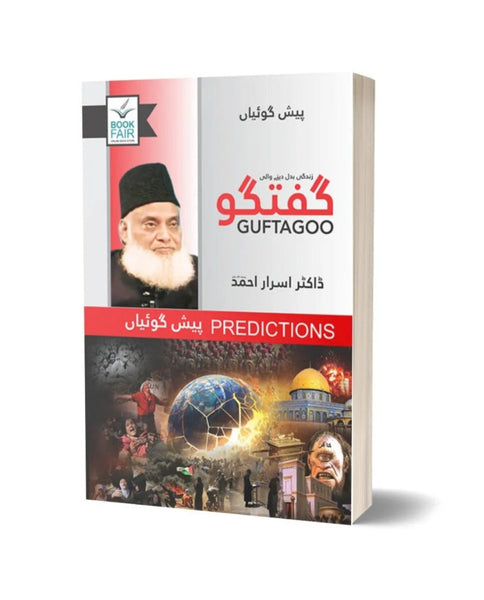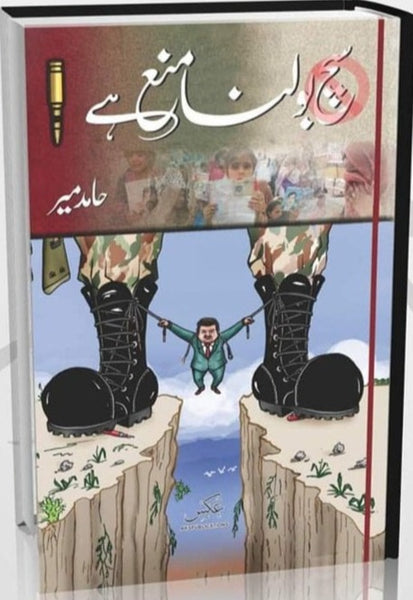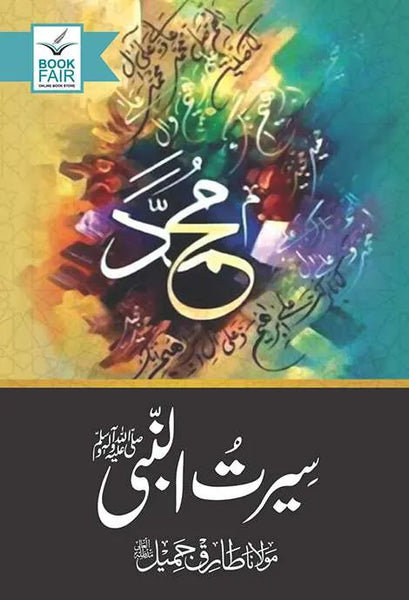Urdu Main Lisani Tehqeeq - اردو میں لسانی تحقیق by Prof Abdul Sattar Dalvi
- Publisher: URDU GENERAL BOOKS
- Availability: In Stock
- SKU: 58439
- Number of Pages: 464
Rs.670.00
Rs.895.00
Tags: Abdullah Academy , Abdullah Academy (عبداللہ اکیڈمی) , Abdullah Academy Publications , best books , Best Price , Best Selling Books , Language and Society in Urdu , Linguistic Research in Urdu , Linguistic Structure in Urdu , Linguistic Theories and Urdu , Lisaniyat aur Urdu Adab , ONLINE BOOKS , Online Bookshop , Prof Abdul Sattar Dalvi , Prof Abdul Sattar Dalvi on Urdu Linguistics , Prof Abdul Sattar Dalvi’s Contribution , Prof Abdul Sattar Dalvi’s Research Methods , Research in Urdu Linguistics , Urdu and Linguistic Inquiry , Urdu Language Analysis , Urdu Language and Culture , Urdu Language and Linguistic Evolution , Urdu Language and Linguistic Theory , Urdu Language Development , Urdu Linguistic Criticism , Urdu Linguistics and Modern Research , Urdu Linguistics Studies , Urdu Main Lisani Tehqeeq , اردو زبان میں لسانی تحقیق کے نئے رجحانات , اردو زبان کی ساختیاتی تحقیق , اردو میں لسانی تحقیق , اردو میں لسانی تحقیق کی ترقی , تحقیق اور لسانی تجزیہ , لسانی تجزیہ اور تحقیق , لسانی تحقیق اور اردو ادب , لسانی تحقیق کی اہمیت , لسانی تحقیق کے اصول , لسانیات کا اردو ادب میں کردار
Urdu Main Lisani Tehqeeq (اردو میں لسانی تحقیق)
Author: Prof Abdul Sattar Dalvi
Publisher: Abdullah Academy
Overview:
Urdu Main Lisani Tehqeeq by Prof Abdul Sattar Dalvi is a comprehensive work that focuses on linguistic research specifically in the context of the Urdu language. It serves as an essential resource for scholars, linguists, and students who wish to engage in linguistic studies in Urdu, offering insights into the methods, theories, and techniques employed in linguistic research.
Key Features:
-
Introduction to Linguistic Research in Urdu
- Offers an in-depth understanding of linguistic research, focusing on its application to the Urdu language.
- Provides a foundation for those new to the subject, explaining the significance of linguistics in understanding language structure, development, and use.
-
Historical Development of Urdu Linguistics
- Traces the evolution of Urdu as a language, examining its origins, influences from other languages, and its growth through various periods of history.
- Discusses the linguistic changes in Urdu over time and the factors that have contributed to its current form.
-
Research Methodologies in Urdu Linguistics
- Describes various linguistic research methods, including phonological, morphological, syntactic, and semantic analysis.
- Explains how these methodologies can be applied to Urdu texts and spoken language.
-
Data Collection Techniques
- Highlights the different techniques for collecting data for linguistic research, including fieldwork, corpus analysis, and historical texts.
- Discusses how to gather, organize, and analyze linguistic data in the context of Urdu.
-
Structural Analysis of Urdu
- Focuses on the structural aspects of the Urdu language, such as grammar, sentence construction, and language rules.
- Provides methods for analyzing the syntax and morphology of Urdu.
-
Sociolinguistic Approaches
- Explores the relationship between language and society, focusing on how social factors influence the use of Urdu.
- Discusses dialects, registers, and the role of Urdu in various social contexts, such as in education, media, and politics.
-
Theoretical Frameworks in Linguistic Research
- Introduces various linguistic theories such as structuralism, generative grammar, and functionalism.
- Explains how these theories are applied to Urdu language research, providing tools for deeper analysis.
-
Language Change and Variation
- Examines language change in Urdu, considering both internal factors (such as phonetic shifts) and external influences (such as contact with other languages).
- Discusses how linguistic variation occurs across different regions, social groups, and generations.
-
Practical Applications of Linguistic Research
- Provides examples of how linguistic research can be applied in fields such as education, language policy, lexicography, and translation.
- Discusses how linguistic research in Urdu can contribute to the development of the language and its use in modern contexts.
-
Challenges in Urdu Linguistic Research
- Identifies common challenges in the field of Urdu linguistics, such as the scarcity of resources, the influence of non-standard forms, and the need for updated research tools.
- Offers suggestions for overcoming these challenges and advancing the field.
Why Read This Book?
Urdu Main Lisani Tehqeeq is an invaluable resource for anyone interested in conducting linguistic research in Urdu. Prof Abdul Sattar Dalvi’s expertise provides a thorough and practical guide to understanding the complexities of the Urdu language. The book is particularly useful for linguists, language scholars, and students who wish to explore linguistic phenomena in Urdu and contribute to the academic field.
Conclusion:
This book is a key resource for understanding the linguistic structure, history, and research methodologies specific to the Urdu language. Prof Abdul Sattar Dalvi’s Urdu Main Lisani Tehqeeq offers a deep dive into the study of Urdu linguistics, equipping researchers with the knowledge and tools needed to engage in high-quality linguistic research.



